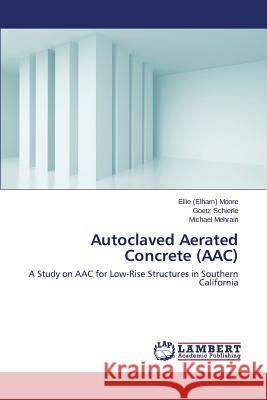Autoclaved Aerated Concrete (Aac) » książka
Autoclaved Aerated Concrete (Aac)
ISBN-13: 9783659407741 / Angielski / Miękka / 2014 / 172 str.
This book is a multi-disciplinary research on a number of material and structural characteristics of Autoclaved Aerated Concrete or AAC. AAC is claimed to have favorable construction, structural and environmental qualities, with great potential to becoming a more commonly used building material; it is light weight, non-combustible, resource efficient, and has acoustic isolating and thermal insulating properties. These characteristics affect different aspects of a construction project, in terms of cost, workability, time, carbon footprint and more. The purpose of this research is to study AAC as a building material to potentially substitute wood or conventional CMU for low-rise residential buildings in Southern California. The book concludes that AAC possesses desirable characteristics, such as light weigh, and higher R-value in comparison with other building materials, and some undesirable characteristics, such as lower shear strength in comparison to conventional reinforced CMU. Taking into account the findings of this book, AAC has unique qualities and potentials worth considering, depending on the requirements of any particular project.
This book is a multi-disciplinary research on a number of material and structural characteristics of Autoclaved Aerated Concrete or AAC. AAC is claimed to have favorable construction, structural and environmental qualities, with great potential to becoming a more commonly used building material; it is light weight, non-combustible, resource efficient, and has acoustic isolating and thermal insulating properties. These characteristics affect different aspects of a construction project, in terms of cost, workability, time, carbon footprint and more. The purpose of this research is to study AAC as a building material to potentially substitute wood or conventional CMU for low-rise residential buildings in Southern California. The book concludes that AAC possesses desirable characteristics, such as light weigh, and higher R-value in comparison with other building materials, and some undesirable characteristics, such as lower shear strength in comparison to conventional reinforced CMU. Taking into account the findings of this book, AAC has unique qualities and potentials worth considering, depending on the requirements of any particular project.











